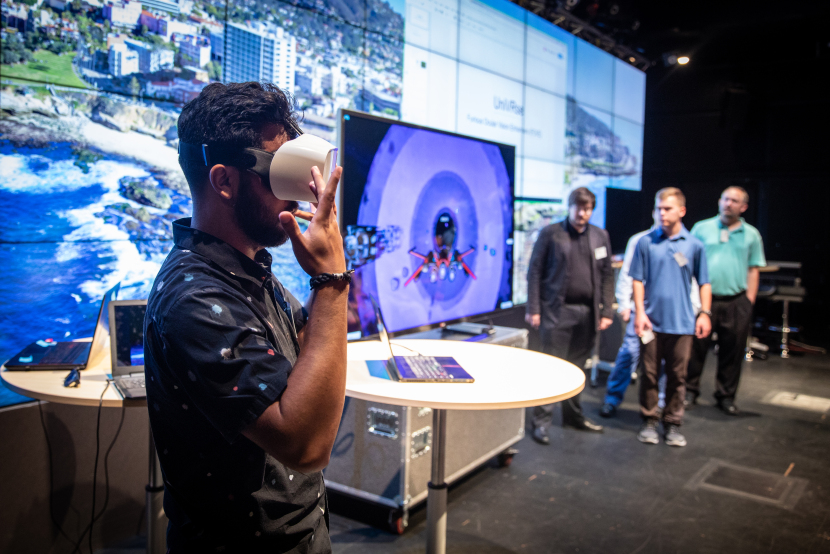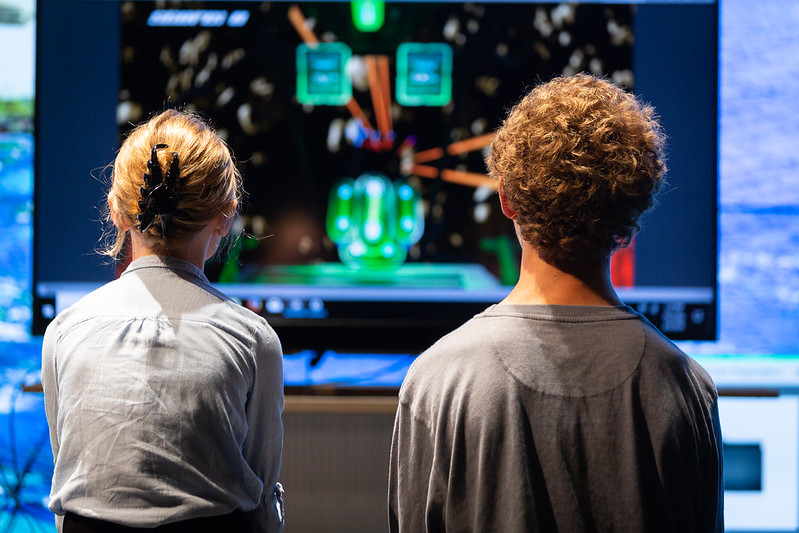Team of Researchers Including CWC Faculty Receive $2.6M NSF Grant to Help Train Autistic Adults for Tech Employment
A team of researchers from the University of California San Diego has been awarded a $2.6 million grant from the National Science Foundation to develop an employment-training program that will tap into the talent and potential of autistic adults for technology work.
“This project seeks to capitalize on the strengths of the autism community and other neurodiverse populations who have previously been marginalized in the workforce but have unique talents that can be leveraged with the right support for technical work,” said Leanne Chukoskie, an assistant research scientist with UC San Diego’s Qualcomm Institute who is a principal investigator on the project.
The research team is comprised of coprincipal investigator Pamela Cosman and investigators Sujit Dey, professors in the Department of Electrical and Computer Engineering; Craig Callender, a professor of philosophy and codirector of the Institute for Practical Ethics; Joshua Shapiro, director of research and evaluation at the Center for Research on the Regional Economy at UC San Diego Extension; and Shana Cohen, an assistant professor in the Department of Education Studies.
“There exists a lot of talent in these communities but it’s not being leveraged into the workforce because of a lack of appropriate training for those groups and assumptions in hiring practices,” she said.
Autism spectrum disorders (ASDs), which are life-long neurodevelopmental disorders characterized by difficulty communicating and interacting with others, affect one out of 59 people. The researchers note the cost of direct autism services in the United States exceeds $236 billion annually and estimate that more than 500,000 people with ASDs will reach working age over the next decade.
The four-year project, “Neurodiversity in tech: using interactive decision theory and augmented reality to enable employment for adults with ASD,” will expand an existing summer training program for young adults on the autism spectrum and develop and test new tools to support communication with neurodiverse employees, with a goal of increasing their employment in the technology industry locally and nationally.
 |
| Power of NeuroGaming (PoNG) summer interns demonstrate their work at a showcase event to a packed crowd in the Qualcomm Institute’s VRoom (August 2018). |
Specifically, the researchers intend to:
- Build upon and refine a successful internship program Chukoskie has developed with tools that support workplace-appropriate communication and other behavioral skills
- Develop an augmented reality (AR) coaching system where a virtual coach conveys the guidance of a human coach when interacting with autistic individuals
- Create a video game that helps participants learn which workplace communication tools are appropriate to use in different scenarios
- Develop an email tool that improves written communication to and from autistic workers to avoid misunderstandings common to ASD-style communications
- Adapt roleplaying scenarios appropriate for the workforce
- Study economic and ethical questions that arise from these technologies
“Several peaks in ability associated with ASD, such as a detail-focused cognitive style and willingness to stay with a single task for extended periods of time, are well matched to the demands of technical employment, especially in the areas such as computer programming, software testing, data science and information technology,” said Chukoskie.
Chukoskie, a neuroscientist, began exploring ways to help individuals with autism lead fuller lives after a family member was diagnosed with the disorder. She is the associate director of the Research on Autism and Development Laboratory at UC San Diego’s School of Medicine. She also directs the Power of NeuroGaming (PoNG) center at the Qualcomm Institute where she leads researchers and students in the design of gaze-driven video games and other technologies to help those with autism improve their focus.
 |
| Young audience members take their turn to try out a two-person eye tracking game created by a team of PoNG interns (August 2018). |
“I have the pleasure of working with talented students and young adults on the autism spectrum who play a vital role in the work we do at PoNG. They bring skills and perspectives that strengthen our team and the technologies we develop,” Chukoskie said. “San Diego is home to a thriving tech community that will benefit from a truly diverse work force that these people can contribute to.”
The project has a unique aspect in leveraging the researchers’ existing connections with technology industry partners, such as San Diego Tech Hub, to provide feedback on the internship program and to innovate hiring practices so that the program can move trainees into technical careers such as software testing and development.
Companies that have stretched to include neurodiverse individuals in the workforce have seen advantages in creative problem-solving and productivity, the researchers said.
“The continued growth of our digital economy demands a large and diverse pool of talent. With the right training and support, individuals with ASD can contribute meaningfully and substantially, improving both individual outcomes as well as advancing productivity of the digital economy overall,” said Chukoskie.
*Chukoskie, along with local business and technology experts, will present a session, “Neurodiversity in Tech: The Power of Inclusion,” at the 2020 South by Southwest Conference in March.
MEDIA CONTACT
Katie E. Ismael
Qualcomm Institute
Phone: 858-246-5898
kismael@eng.ucsd.edu
